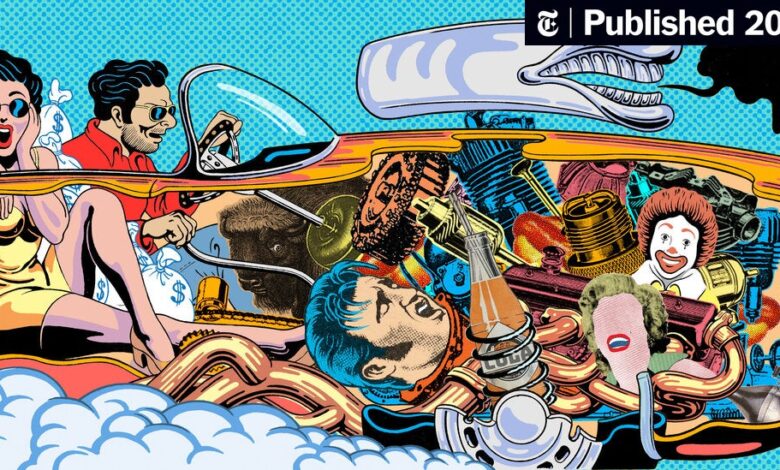Book Review: ‘America Fantastica,’ by Tim O’Brien

AMERICA FANTASTICA, by Tim O’Brien
When scientists take a core sample of fiction from the post-Trump era, they will discover American novelists struggling to unpack the political and social repercussions of his reign. Just as historians work to document the facts of the last 10 years, so, too, do novelists try to reveal their meaning. Tim O’Brien’s diagnosis of what ails America in 2023 is “mythomania,” which he defines as an epidemic of lying that swept our nation during the Trump presidency, infecting man and, he writes, bird alike.
In “America Fantastica,” a manic road-trip-meets-crime-spree novel, O’Brien — the award-winning author of “The Things They Carried” and “Going After Cacciato” — speaks through an omniscient narrator, one who regularly interrupts the story to describe the spread of this so-called disease:
Bullyism skyrocketed. Marriages collapsed. Prayer groups turned violent. By the last day in July of that year, perjury had become a feather in the cap, E no longer equaled MC squared, and the interchangeability of truth and falsehood filled psychiatric waiting rooms.
Centered on the exploits of Boyd Halverson (not his real name), an investigative reporter turned J.C. Penney manager slash serial liar, the novel begins with his robbing a bank in Fulda, Calif., and taking the teller, Angie Bing, hostage. What follows is a cross-country escapade, from Texas to Minnesota, filled with colorful characters who include Boyd’s ex-wife, her new C.E.O. husband, her scheming billionaire father, the married owners of the bank in question (who don’t report the robbery because they’re too busy robbing the bank themselves) and Angie’s homicidal, reality-challenged fiancé, who sets off in pursuit.
It is a tall tale that reads like flyover state Elmore Leonard. And if O’Brien had just set out to write a comic misadventure, the book would certainly pass muster as entertainment. But by adding a veneer of topicality, O’Brien aims to turn his characters into case studies for a nation’s moral failure. In doing so, he burdens the book with the weight of cranky satire.
Source link




